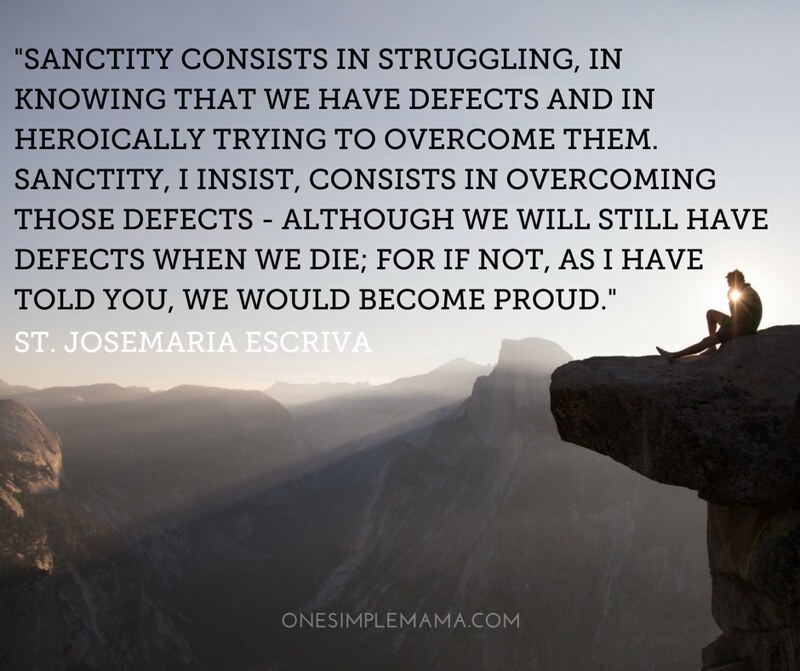Today the Church celebrated All Saints’ Day,and tomorrow All Souls’ Day, beginning the month of November dedicated to remembering and praying for all souls who have gone passed from this life to the next.
A friend of mine and I were talking recently about Saints and how, the more we read or learn about their intimate lives, we realize they really were not as “perfect” as maybe we were led to believe as children. It’s been said that some of the authors who have written saint biographies deserve a certain amount of time in purgatory for only focusing on the saints’ best or ultra-human features and leaving out the parts that made them ordinary humans – relatable to the rest of us simpletons.
The truth is, the more time I spend getting to know those the Church has canonized as “Saints”, the more I realize they really weren’t “perfect”. They weren’t born with halos or superhuman powers. They all had their struggles – many of them had to overcome severe psychological challenges and mental anguish before they could fully abandon themselves to Christ. In fact, it was quite common for others around them to question their sanity before admitting their sanctity. It’s always easier to explain the unexplained first by accusing someone of insanity or calling them “delusional” rather than admit Jesus or Mary or anything supernatural could really occur.
On the flip side, I’ve been slightly perturbed as I look at some of the “Saints” through the Church’s history that supposedly led “holy lives” but in reality they probably really were crazy after all.
It’s interesting how our understanding of sanctity and sanity has developed and evolved over the years. Where in one age it was considered holy to “beat the hell out of yourself” quite literally through self-mutilation, we now see this as a heretical and disordered Albigensian mindset about the human body. (that the spirit must be freed from the “evil” body.)
As an adult, I’ve also been shocked and dismayed to learn that many of the stories I learned about Saints as a child were pieced together with patches of hearsay that maybe started with some facts but spun into cultural folklore and legends over the centuries. There is so much we really do not know about these men and women we revere as Saints.
For some, these discrepancies are probably enough to sway a doubting soul into partial or even complete disbelief in the Saints, the Church, and God all together. However, for me, even when the curtains pull up, revealing unusual and even scandalizing behind-the-scene information about some Saints, it now has the opposite effect on me.
I’m someone who struggles with scruples. (No, really?! I bet you didn’t know that.) In other words, I struggle with a low spiritual-self esteem. It’s easy to get down on myself and feel like I’m not good enough in the eyes of Christ or the Church, especially when I compare myself to all the great Saints of the past.
But then I’ll read about a Saint who admits she detests praying the rosary –
It’s a terrible thing to admit, but saying the Rosary takes it out of me more than any [scratchy and rough] hair shirt … Try as I will, I cannot meditate on the mysteries of the Rosary. I just cannot fix my mind on them” —St. Therese of Lisieux, Story of a Soul
Or others who have cried out to God, begging them to remove their pain and suffering instead of just accepting it with a holy smile on their face. Or all the great Saints who truly suffered from mental delusions yet continued trusting in God and clinging to Him faithfully, or the many mothers who fought impatience or “anger-management problems” daily yet they continued caring for their children out of love for them and the Lord who gave them to her, or those Saints who felt nothing, only darkness – no happy fuzzies after receiving the Eucharist, no warm glows of light when they prayed and, still, they continued serving Christ – serving His people selflessly.
I read these stories, even if parts of them may be less than 100% true, and they keep me going.
The Saints show me that being a “saint”, isn’t about being perfect or always saying, “Yes, Lord!” to everything He asks or permits to happen to me with a huge happy smile on my face the whole time.
Being a Saint is is about acceptance – even when we’d honestly rather not.
It’s about saying,
God, I really have no idea why you’re letting this happen to me, I really, really hate this. But I believe You do know why. And so, I’ll follow you. I’ll trust you. Lead me. Where I do not want to go, I will go as long as you lead the way and stay with me.
Like the quote I shared from Josemarie Escriva, “Sanctity consists in struggling…” In knowing we aren’t perfect, in seeing our weaknesses but instead of falling into despair or self-loathing, we allow God to use our weaknesses for His Glory and for the redemption of not only our own souls but all souls.
And so I’m thankful today for all the Saints the Church has given us as examples to lead and light us on our own unique paths. They are there, cheering us on, showing us that yes, it can be done. “If we did it – even with our terrible imperfections and delusional tendencies – surely you can too.”






